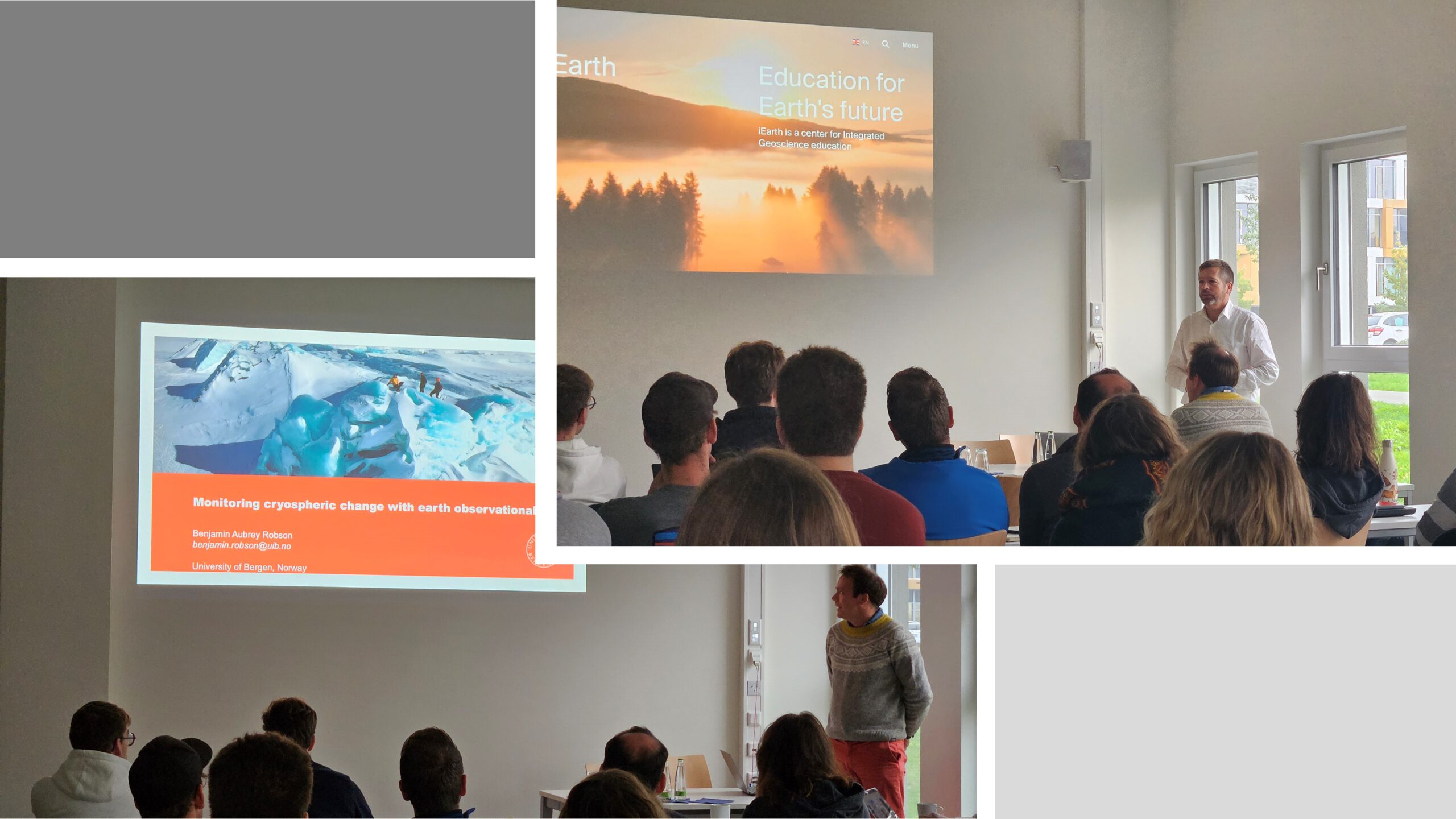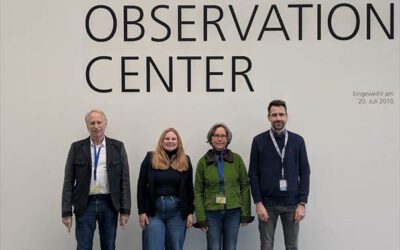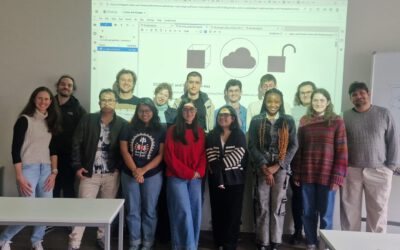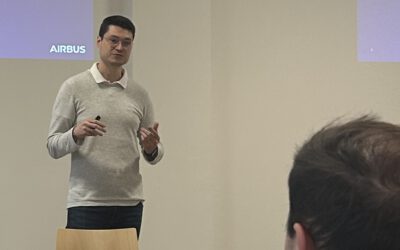On October 22, the EORC once again hosted the EORC Talk. In their joint presentation, our guests Benjamin A. Robson and Jostein Bakke from the University of Bergen in Norway provided insights into their research activities, such as on using remote sensing for characterizing and identifying landforms like debris-covered glaciers and rock glaciers, and the Center for Integrated Earth Science Education (iEarth, https://www.iearth.no/). iEarth is a student-centered, innovative learning environment for future Earth scientists and citizens to meet complex societal challenges and opportunities. Many cluster members and members of the institute, as well as many students from the EAGLE Master’s program and the ‘Studiebereich Geo’ at the THWS Würzburg joined the EORC Talk and the following discussion.
We wish both guests a good time in Germany with great impressions and fruitful cooperation coversations.
From the announcement:
Associate Professor Benjamin Robsons’ (Department of Earth Science | Faculty of Mathematics and Natural Sciences | University of Bergen) research focuses on using remote sensing (RS) datasets to characterize and identify landforms, such as debris-covered glaciers and rock glaciers, and to assess decadal-scale planimetric and volumetric changes. He uses various RS techniques, including object-based image analysis (OBIA), deep learning and machine learning, photogrammetry and topographic analysis, structure from motion (SfM), LiDAR, and time-series analysis. His work spatially concentrates on areas in the Nepali Himalayas, the semi-arid Andes, the European Alps, the Norwegian mainland, and the Tien Shan mountains. Benjamin Robson is also an affiliated external Mountain Cryosphere Research Group member at the University of St. Andrews, Scotland.
Jostein Bakke (Department of Earth Science | Faculty of Mathematics and Natural Sciences | Bjerknes Centre for Climate Research | University of Bergen) holds a position as a Professor at the Department of Earth Science and is a member of the Quaternary Research Group, the director of the Centre for Integrated Earth Science Education (iEarth), and the leader of EARTHLAB (national infrastructure). His research focuses on quaternary geology, physical geography, glacial history, paleoclimatology, geomorphology, and lake sediments worldwide. He is involved in projects in the Himalayas, Europe, and Scandinavia. In the nationally co-ordinated NORPAST-2 research project, he was a postdoc on one of the project modules studying Late glacial and Holocene climate variability.









